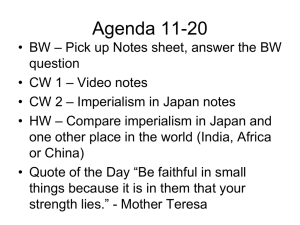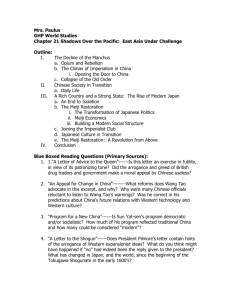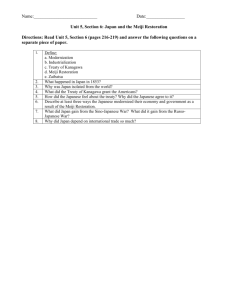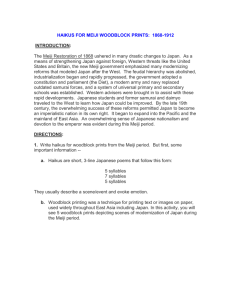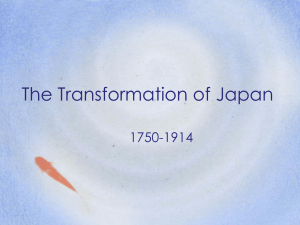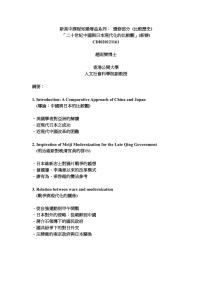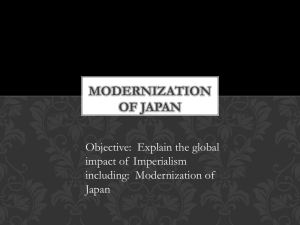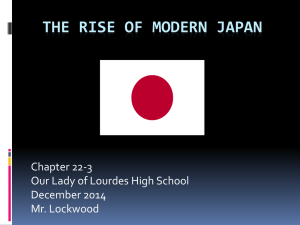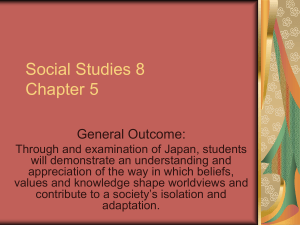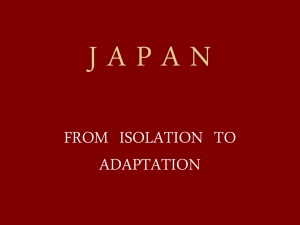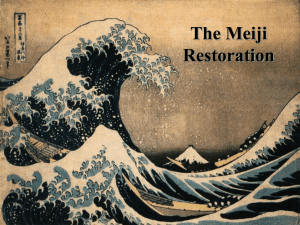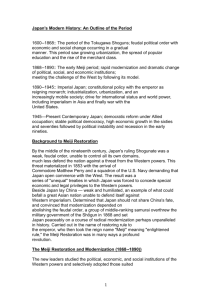japan 1871-1914
advertisement
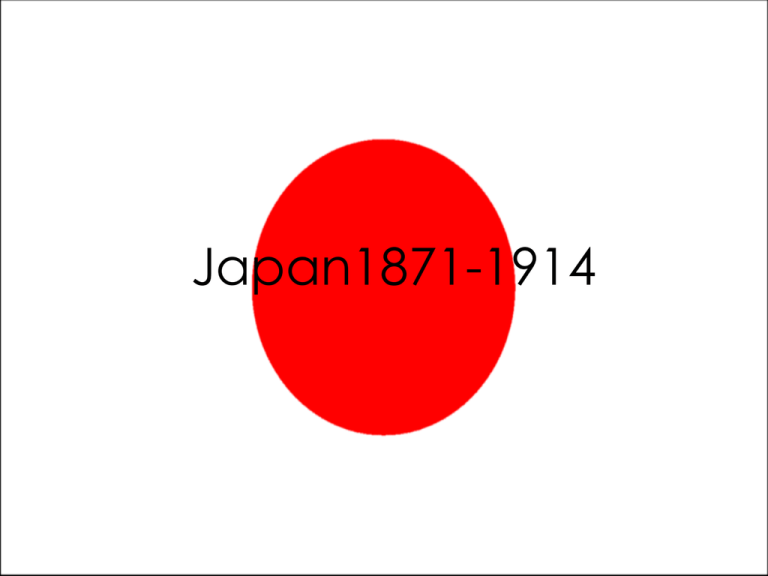
Japan 1870-1914 Japan1871-1914 Domestic Policy • • • • • Meiji Period: a Japanese era which extended from September 1868 to July 1912. This period represents the first half of the Empire of Japan, during which Japanese society moved from being an isolated feudalism to its modern form. Emperor was restored to power until 1912 Regained full control of legal system and trade from foreign powers. Financial Development of the Meiji Period: – Creation of national and private banks, forming the modern banking system. By 1912 Japan achieved: – A slightly centralized bureaucratic government – A constitution establishing an elected parliament – A well developed transport and communication system – A highly educated population free of feudal class restrictions. – An established and rapidly growing industrial sector based on the latest technology. – A powerful army and navy. Japan’s Leaders 1871-1914 • Okuma Shigenobu (1838-1922) – Contributed greatly to Meiji Era modernization – Improved the economic situation of Japan – Worked to improve Japan’s government and unequal treaties. – As modernization occurred the samurai slowly lost authority and importance – Was finance minister of Japan and used this office to improve the economic standing of Japan. – 1881 he worked to add a parliament – Founded Kaishinto, a political party that encouraged modernization • Ito Hirobumi (1841-1909) – Was a contributor to the changes made during the Meiji Restoration – Worked to revise the unequal treaties between Japan and Western powers – 1871 he studied western technology – Became minister of Japan 1878 – Focused on improving and modernizing the government – Made a constitution for Japan – European countries were viewing Japan as an equal and capable of great things • Yamagata Aritomo (1838-1922) – – – – – – – Believed westernization was necessary to protect Japan Main supporter of Meiji Restoration Began westernization, industrialization, and modernization in Japan 1882 he became President of the Legislative Board of Japan Established the first principles of the Meiji Constitution Encouraged Japan to extend their empire throughout Asia Encouraged Japanese westernization and modernization Foreign Policy • • • • • • • • • Before European contact the Japanese would not communicate with anybody and isolated themselves Commodore Perry arrived in 1854 and forced to open Japan doors to western trading Japan is forced to sign unequal treaties with Britain and they exclusively traded with Britain Japan modernized and became more like the western powers To ensure their safety they strengthened their military and started crafting ships and ports for the ships Because of this Britain could no longer keep them exclusive They soon became the fastest growing trading nation in Asia trading with the Americans ad other European powers Japan realized the success of the treaties and created a treaty with Russia (territorial delimitation treaty), Japan gained the Kuril islands in exchange for Sakhalin island Japan improved their military and by 1894 had over 200 000 solders
